Mercedes-Benz completely withdraws, BYD takes over, and Denza's identity changes
![]() 09/24 2024
09/24 2024
![]() 585
585
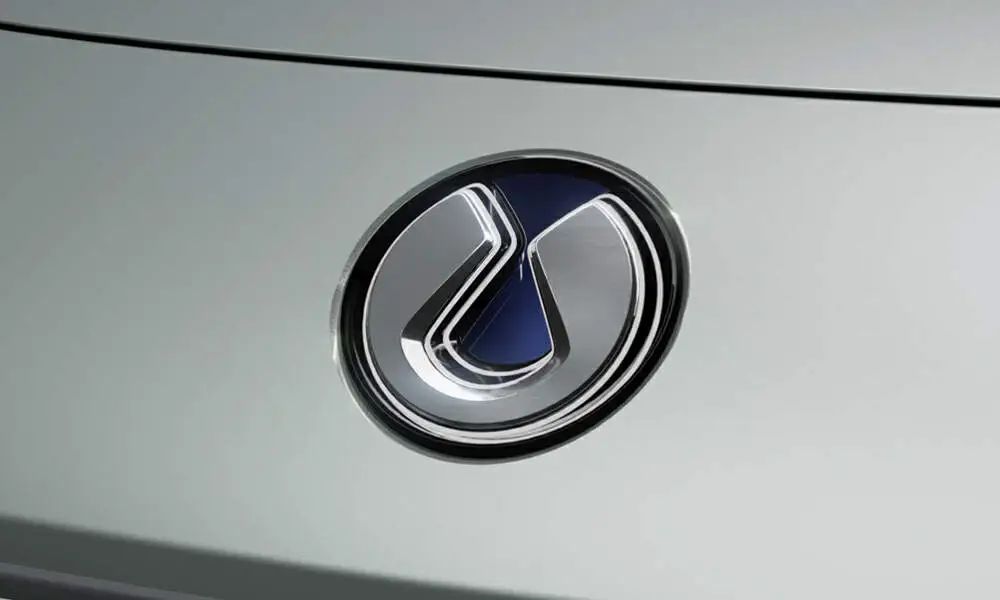
Joint venture becomes independent
Author: Wang Lei, Liu Yajie
Editor: Qin Zhangyong
The last traces of Mercedes-Benz on Denza have been erased.
Recently, Shenzhen Denza New Energy Automobile Co., Ltd. has undergone several changes, including the withdrawal of Mercedes-Benz (China) Investment Co., Ltd., and the 10% stake it held has been officially transferred to BYD.
Regarding the board seats of Denza Automobile, Hans Georg Engel, the former director and Senior Executive Vice President of Mercedes-Benz (China) Investment Co., Ltd., has resigned.
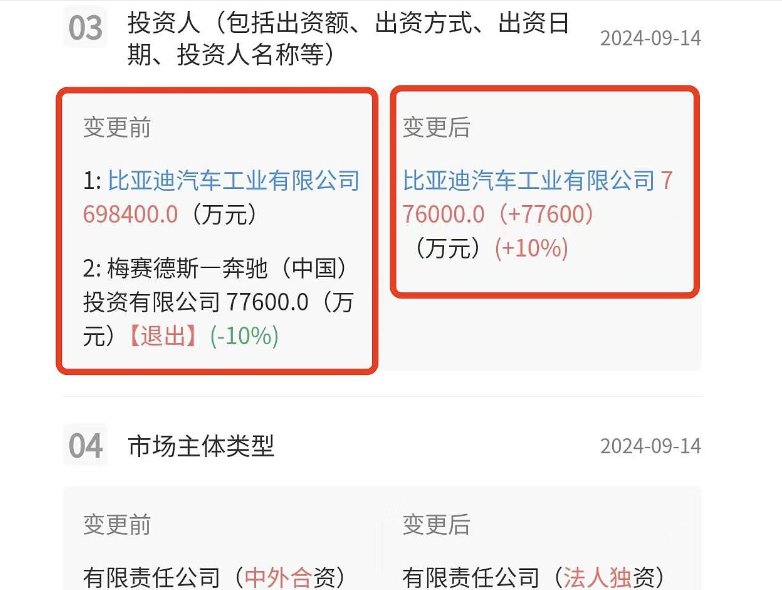
This also means that Denza Automobile has become a wholly-owned subsidiary controlled by the BYD Group.
Interestingly, at last month's press conference, Wang Chuanfu just thanked Mercedes-Benz, saying that it was precisely because of Mercedes-Benz that Denza could carry the gene of luxury cars from the day of its birth.
Now that the Denza brand is booming, with new cars constantly being updated and iterated, Mercedes-Benz, one of the biggest backers behind it, has quietly left the stage.
01 Early development was not smooth
As a "new force" brand born on the shoulders of giants, Denza's starting point is not bad.
In March 2010, BYD and Daimler, the parent company of Mercedes-Benz, signed a memorandum of cooperation. In 2011, BYD Daimler New Technology Co., Ltd., the predecessor of Denza New Energy, was established, with BYD and Daimler each holding 50% of the shares.
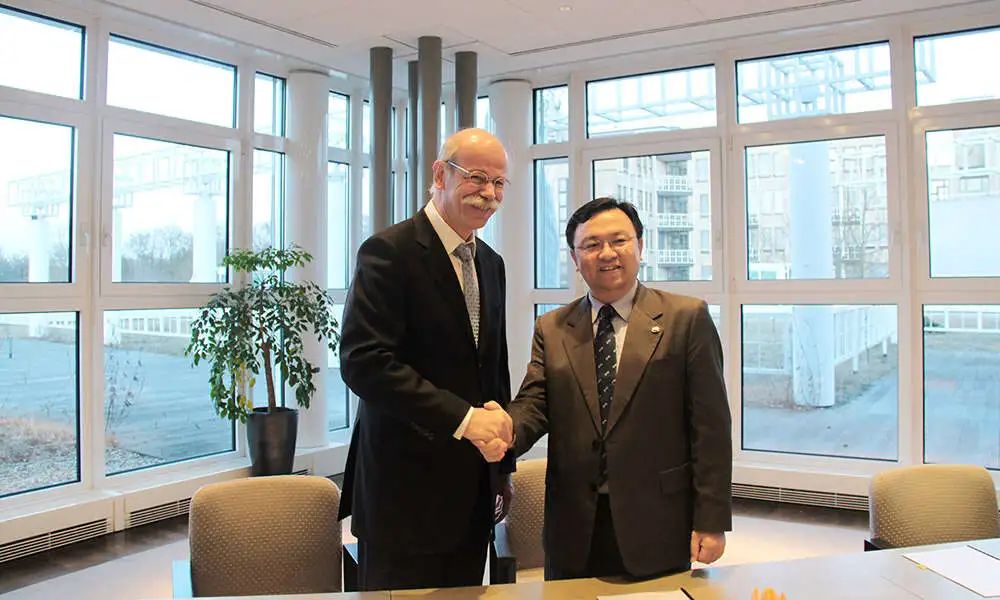
Since its inception, Denza's goal has been to create high-end electric vehicles for the Chinese brand, with both parties meeting their respective needs.
BYD is responsible for battery and drive technology, while Mercedes-Benz is responsible for vehicle technology. In other words, BYD can learn from Mercedes-Benz's experience and vehicle manufacturing philosophy, while Mercedes-Benz can leverage BYD's new energy technology.
Backed by two major players, Denza has ample financial and technical resources, allowing it to move relatively quickly.
In April 2012, Denza's first concept car was unveiled at the Beijing International Auto Show; in September 2014, Denza's first mass-produced vehicle, the Denza 300, was launched, followed by the Denza 400 and Denza 500.
Although born with a silver spoon, Denza's early development was not satisfactory. According to data from the China Passenger Car Association, Denza sold 2,800, 2,287, 4,713, and 1,974 vehicles from 2015 to 2018, respectively, for a cumulative sales volume of 11,774 vehicles over four years. That's less than some new forces sell in a single month nowadays.
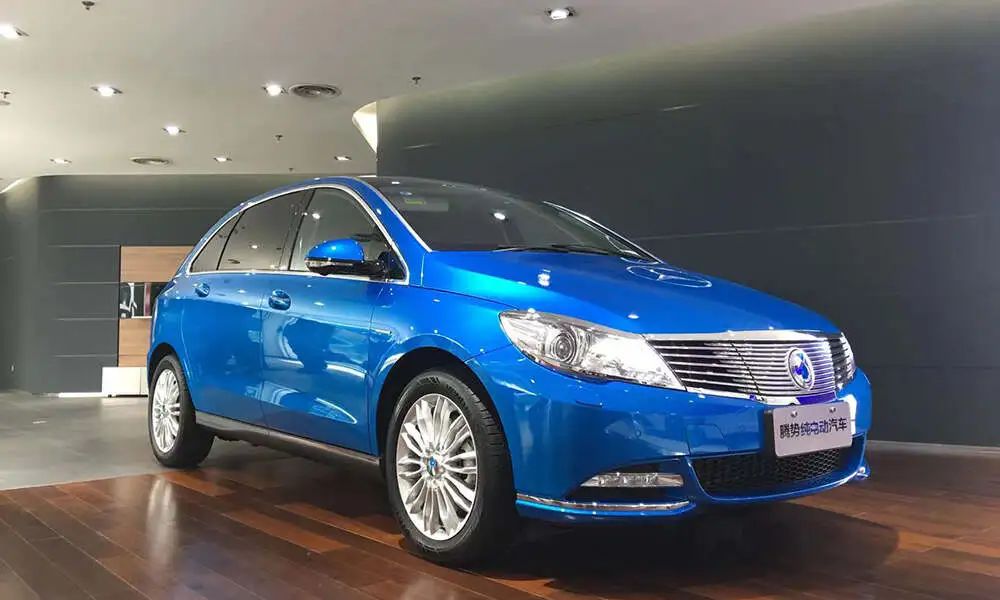
Looking back now, it is highly likely that Denza's poor early sales were due to bad timing.
A decade ago, the share of new energy vehicles was very low, and Denza's positioning as a luxury brand made it difficult to appeal to the market with a price tag of around 300,000 yuan. Furthermore, all Denza vehicles were pure electric models at the time, and the charging infrastructure was relatively weak, making it difficult for consumers to accept them.
To get out of the dilemma , Daimler announced in 2019 that Beijing Benz Sales Company would take over some of Denza's business. In addition to product research and development and manufacturing, Denza's sales, service, marketing, communication, and network construction were all integrated into Mercedes-Benz Sales Company.
Subsequently, Denza launched a new model, the Denza X, which is available in both pure electric and hybrid versions.
Although the exterior design has changed to better reflect the electric vehicle label, other new force brands have also emerged in this year. Even though the product capabilities have improved and the design has been optimized, Denza still needs to enhance its competitiveness compared to other brands in the same period.
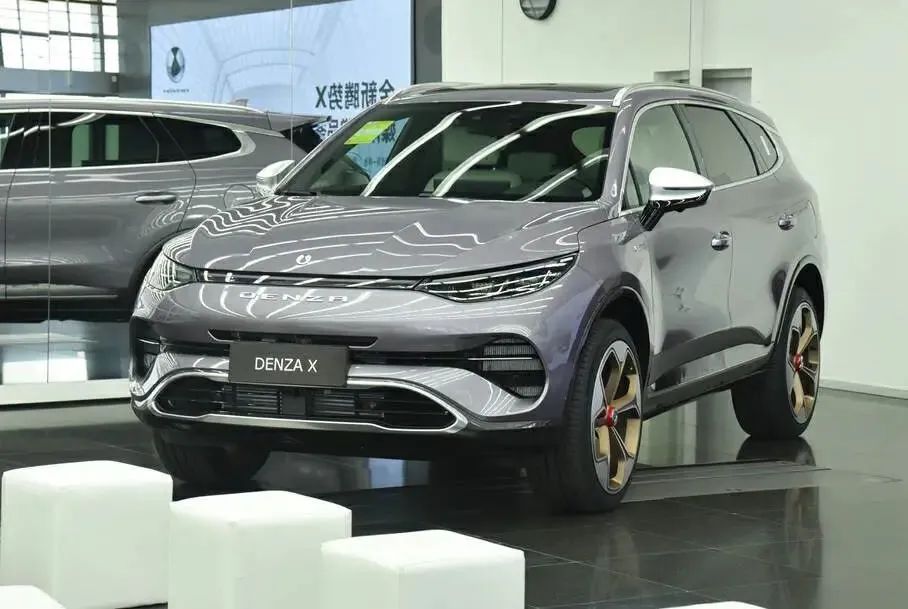
In such a market environment, even if the Denza X is displayed in a Mercedes-Benz dealership, it is difficult for it to compete with other players.
From the launch of its first car in 2014 to 2021, Denza sold fewer than 30,000 vehicles, while NIO sold over 20,000 vehicles in 2019 alone.
Poor sales naturally affect revenue, and since its inception, BYD and Mercedes-Benz have repeatedly injected capital into Denza to keep it afloat. From 2012 to 2021, BYD and Daimler jointly injected capital into Denza 12 times, with a total investment exceeding 7 billion yuan.
BYD's financial report shows that from 2016 to 2021, Denza lost 1.3 billion yuan, 480 million yuan, 890 million yuan, 1.15 billion yuan, 420 million yuan, and 240 million yuan, respectively, for a cumulative loss of over 4 billion yuan over six years.
It can be seen that during the period when Mercedes-Benz participated in the Denza brand, the latter's presence in the new energy vehicle market was not high.
02 BYD era of Denza
In the eyes of the outside world, Mercedes-Benz's attitude towards Denza has been one of "successive withdrawals," from initially holding 50% of the shares to reducing it to 10% and finally completely withdrawing. In this process, BYD's voice has become increasingly louder.
One undeniable fact is that as Mercedes-Benz gradually withdrew, Denza did indeed turn around.
The "rebirth" of the new Denza dates back to the end of 2021, when Daimler announced that it would transfer a 40% stake in Denza to BYD in December 2021.
In July 2022, BYD increased its shareholding in Denza to 90%, while Mercedes-Benz reduced its stake to 10%. BYD stated during a conference call at the time that BYD would lead Denza's strategic development, while Daimler would shift from strategic investment to providing assistance and support, effectively taking a backseat role.
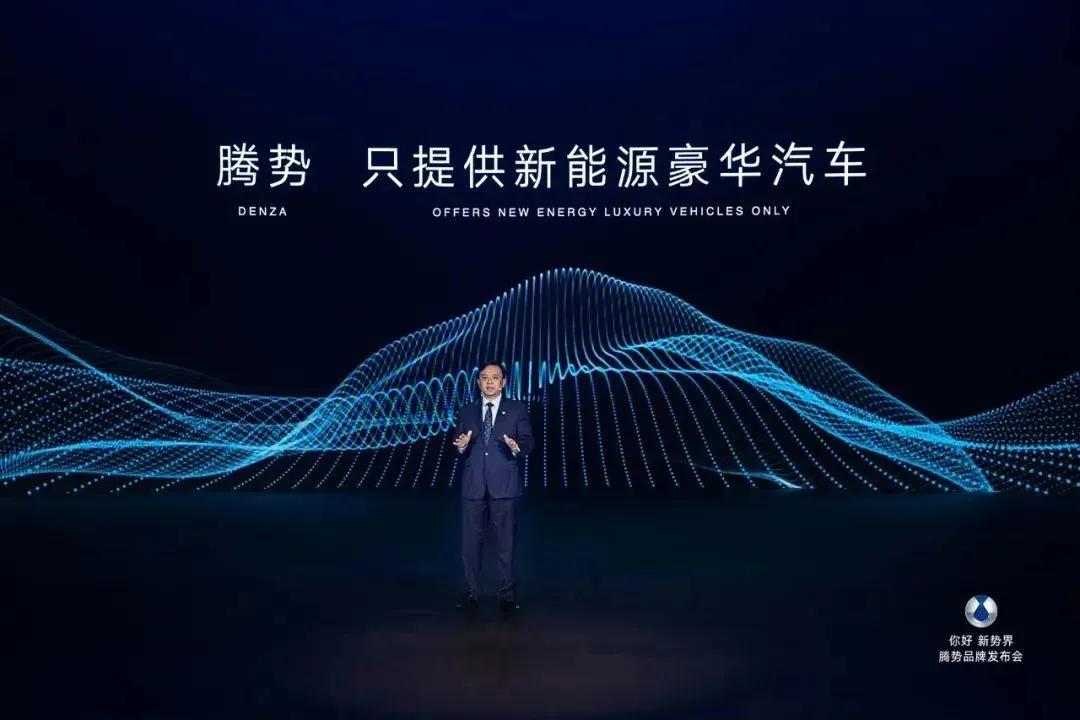
This role shift also marked the end of Denza's decade-long history of vehicle manufacturing under Daimler's leadership. At the same time, Denza announced its independence, operating independently and building its own sales channels.
From this point on, BYD, now in the dominant position, embarked on a comprehensive reform of Denza's technology, products, and channels, not only changing its logo but also launching new models.
In August 2022, the revamped Denza Automobile unveiled its first model, the Denza D9, positioning it as a mid-to-large-sized luxury MPV with a price range of 329,800 to 459,800 yuan at the time, re-entering the new energy vehicle market with a bang.
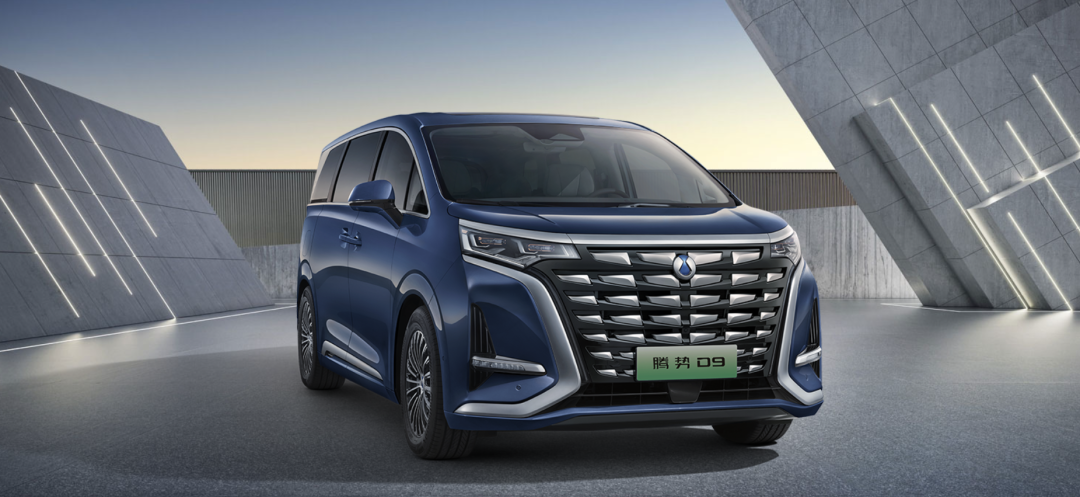
In less than two years, the Denza D9 has become the sales champion in China's MPV market, not only changing the dominance of Buick GL8 in the MPV market but also increasing the influence of independent brands in the high-end market.
The Denza D9 DM-i sold 112,000 units in 2023, surpassing Buick GL8 to become the top-selling MPV model in China. Denza sold a total of 127,000 vehicles in 2023, with the Denza D9 accounting for over 92% of total sales.
From January to August this year, Denza sold a cumulative total of 79,753 vehicles, of which the D9 accounted for 71,201 vehicles, or 89.28% of total sales. Although the other two models had relatively average sales performance, they were still much better than previous Denza models, with the N7 selling 8,083 units and the N8 selling 469 units.
In addition to the D9, N7, and N8 models, Denza Automobile has also opened pre-sales for its fourth model, the Denza Z9 series. Although specific order details have not been announced, according to Zhao Changjiang, Chief Co-Creation Officer of Denza Automobile, "Orders for the Denza Z9 GT and Z9 exceeded the monthly sales of mainstream luxury sedans in the same price range within 24 hours." Its sales performance is also expected to be strong.
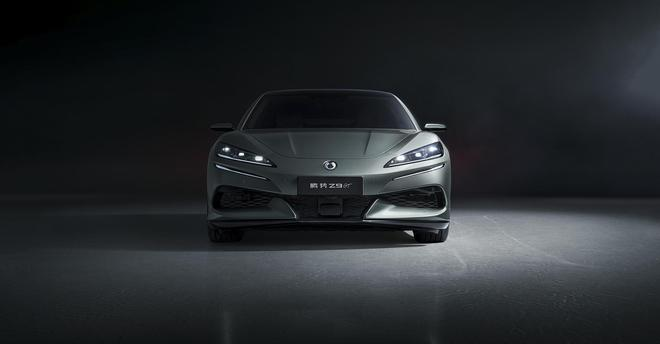
Judging from Denza's rebound, it has indeed seized the initiative in terms of products and technology.
For example, the Denza D9 is a newly developed product rather than a modified version of an existing BYD or Mercedes-Benz model.
Moreover, the launch of the Denza D9 addressed previous issues such as short range, poor power, and unstable technology with BYD's cutting-edge technologies, including the "e-platform 3.0," "DM-i hybrid technology," and "blade battery."
Furthermore, around 2023, new force automakers largely focused on sedans and SUVs, leaving a gap in the luxury MPV segment in the new energy field.
If Denza was previously underappreciated, it is now in the right place at the right time. The domestic independent new energy vehicle market is booming, and crucially, the gap between joint venture and domestic brands is gradually narrowing.
For BYD a decade ago, Denza's existence was about leveraging Mercedes-Benz to reach a higher-end market.
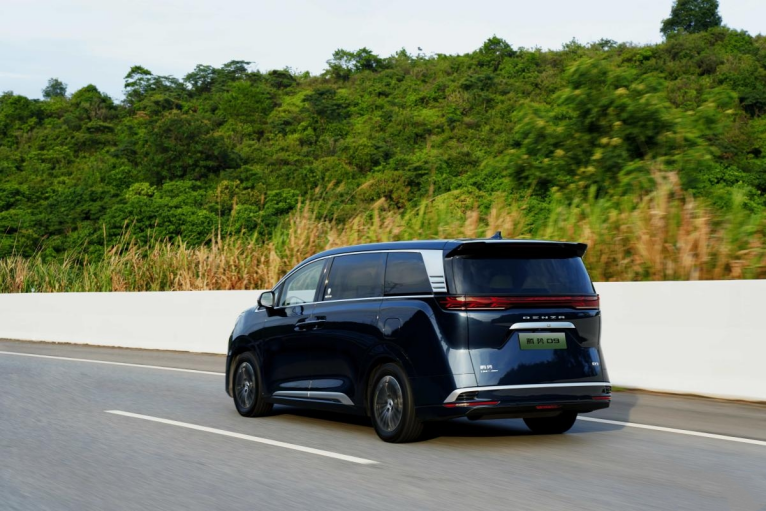
But times have changed. BYD has firmly established itself as the leader in the domestic new energy vehicle market, with the highest global sales of new energy vehicles. In its business landscape, the Denza brand will bridge BYD's Dynasty and Ocean series with its premium brands such as FANGCHENGBAO and YANGWANG.
At the same time, in terms of intelligence, Denza is also an important focus of BYD's technology. Whether it is boosting sales or strategic significance, Denza has become a crucial card for BYD.
Denza Automobile's sales target for 2024 is 200,000 vehicles, and it has already completed about 40% of this target. With an increasing number of competitors, Denza, now wholly owned by BYD, still has a long way to go.







